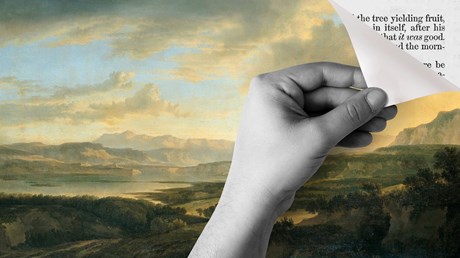Unperturbed by debates over the book’s relationship to modern thought, she helps us appreciate its marriage of literary structure and theological claims.

In her latest book, Reading Genesis, Marilynne Robinson insists that modern readers have largely misunderstood the literary and theological significance of the Bible.
Among the most salient causes of this misunderstanding, she argues, is our tendency to read ancient texts through modern categories—history, myth, fiction, nonfiction—that do not map neatly onto ancient literature. The result is a never-ending and mostly unnecessary debate between those who approach Genesis as a catalog of events and those who read it as mythic pastiche, pieced together from various ancient sources.
We get a feel for Robinson’s impatience with this debate in her characterization of the factions warring over Noah’s flood: “One side in the controversy is rebuilding the ark to demonstrate its seaworthiness, or tramping up Ararat looking for its wreckage. The other sees the story as cribbed and fraudulent.” Both sides, Robinson concludes, are led astray by the same impulse to judge the veracity of Genesis on the basis of how closely it conforms to historical events.
In fact, as she argues at the outset, “the Bible is a work of theology, not simply a primary text upon which theology is based.” The implication for modern readers of Genesis is that when we focus primarily on the historicity of the Flood account, for example, we tend to ignore the arrangement of Genesis as a work of literature designed to grapple with theological questions.
Arranged with artistry
This is not to say that Robinson doubts whether all the events represented in Genesis took place or that she fails to consider its compositional history. The goal of Genesis, in her estimation, is not to offer a play-by-play of primeval events but …

